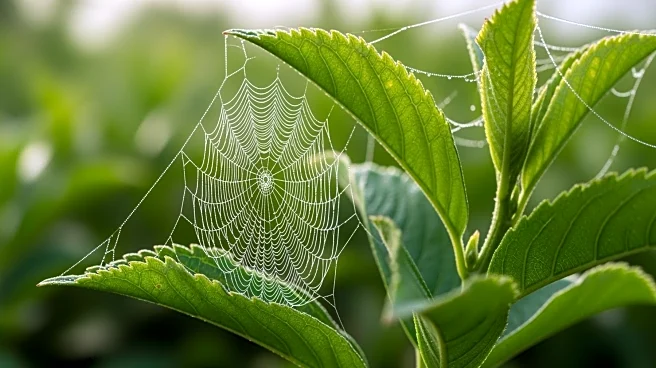What's Happening?
A recent inquiry into the resilience of spider webs has revealed insights into how spiders cope with their webs being destroyed. The study focuses on orb-weaver spiders, whose webs are designed to catch
flying insects. These webs are often destroyed by larger animals, including humans, birds, and mammals. Despite the energy expenditure required to rebuild webs, orb-weaver spiders have thrived for over 100 million years, indicating that the benefits of catching prey outweigh the costs of web destruction. The study suggests that occasional human interference is unlikely to significantly impact the survival chances of spiders, although systematic destruction would be harmful.
Why It's Important?
Understanding the resilience of spider webs provides insights into the ecological balance and survival strategies of spiders. This knowledge is important for biodiversity conservation, as it highlights the adaptability of species to environmental challenges. The study also underscores the importance of preserving natural habitats and minimizing human impact on ecosystems. By recognizing the resilience of spiders, conservation efforts can be better directed to support the broader ecological systems in which they play a crucial role.









